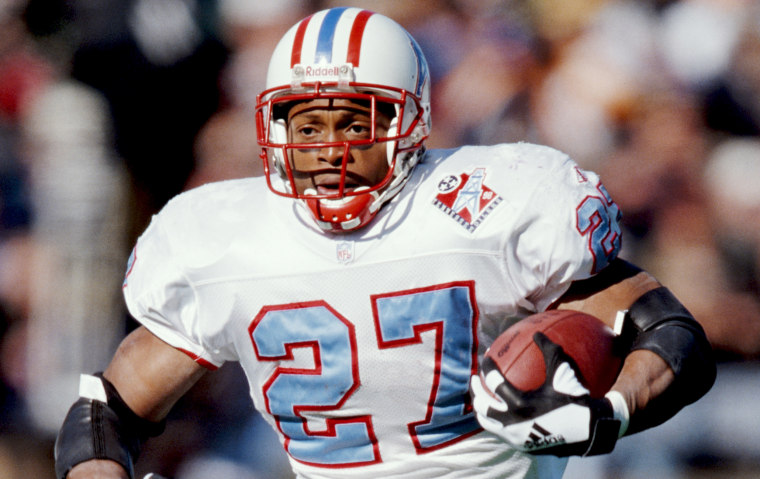Eddie George is a former Heisman Trophy winner and NFL running back who played nine seasons in the league.
Following his retirement from football in 2004, the Ohio State University alum went back to school to earn his MBA from Northwestern University’s Kellogg School of Management. Using the financial knowledge he gained as an athlete and MBA graduate, George later started his own financial management firm called Edward N. George Wealth Management in 2016.
Now, as a successful entrepreneur who knows about the value of saving and investing your money, George says he has one piece of advice for young athletes today. “Begin with the end in mind,” he tells host Andrew Hawkins on the “Kneading Dough” podcast.
George explains that young athletes starting out should ask themselves where they want to be financially, spiritually, emotionally and in terms of awards at the end of their careers. He says if your goal is to just make money, become a celebrity and be on Instagram, then it’s important to know “that will last about seven or eight years and then fizzle out.”
But, he says, if you come in hungry with the desire to be the best at what you do, then “that’s a 15-year career, plus multiple contracts, plus endorsements and so forth.”
“So, it’s very important how you see yourself,” he says. “On the financial side, what is your end goal? What does that look like? Is it $50 million? $20 million? $30 million? And how are you going to get there?”
For example, if your goal is to have $50 million tucked away at the end of your career, he says it’s imperative that you ask yourself early on, “Is it worth me buying $500,000 worth of jewelry here? Or taking that $500,000 and putting it towards an investment that is going to compound interest over time toward my end goal?”
New York Jets linebacker and University of Pennsylvania Wharton School alum Brandon Copeland agrees that saving and investing your money early is the key to long-term financial success. That’s why the 28-year-old, who has held off-season internships on Wall Street, saves nearly 90% of his NFL salary.
“This career can end at any moment,” he told CNBC last month. “Any money I make I’m trying to extrapolate that out for life. I’m trying to save as much as possible.”
